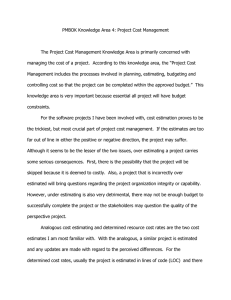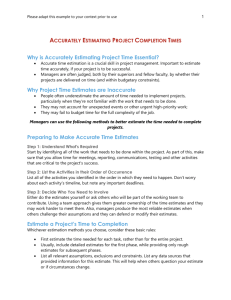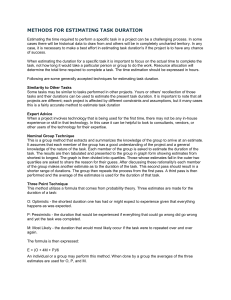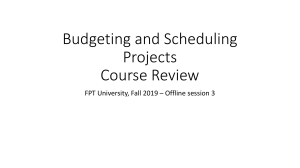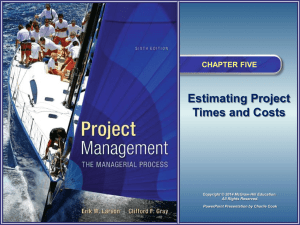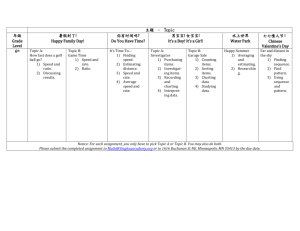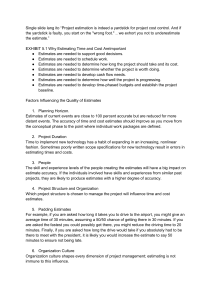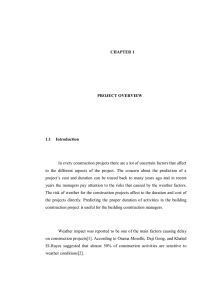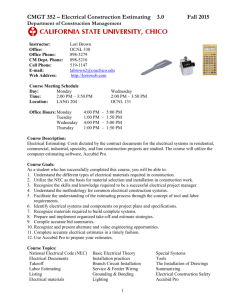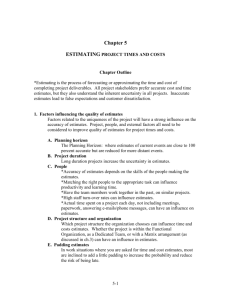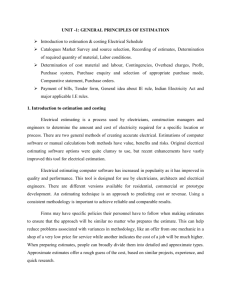Project life cycle is
advertisement
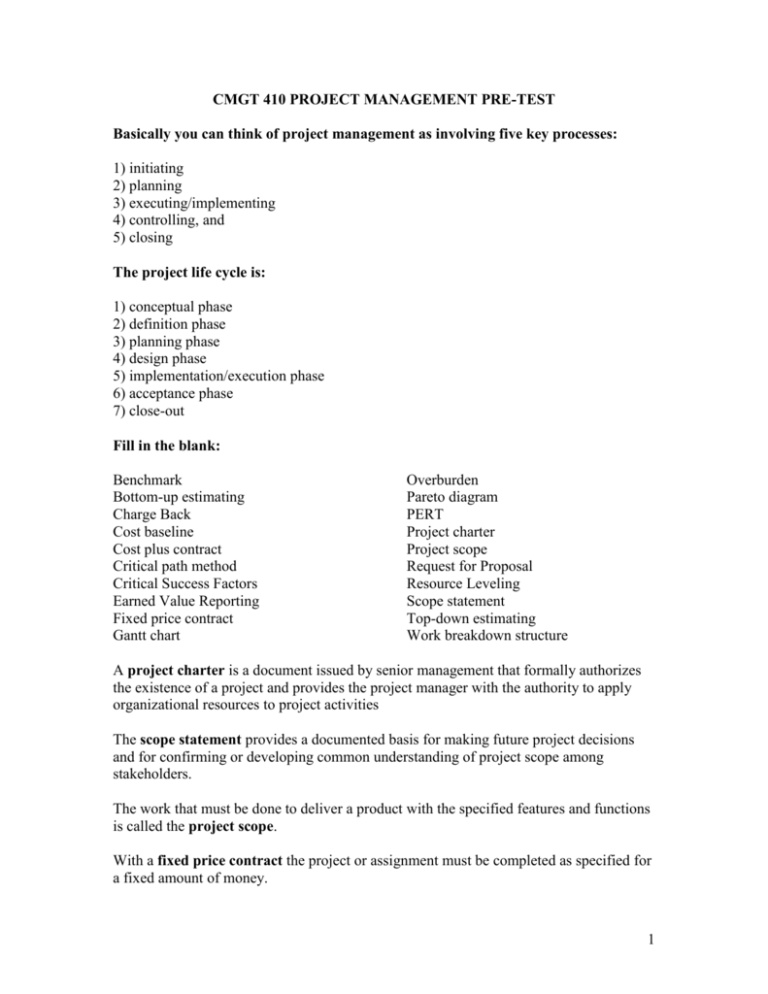
CMGT 410 PROJECT MANAGEMENT PRE-TEST Basically you can think of project management as involving five key processes: 1) initiating 2) planning 3) executing/implementing 4) controlling, and 5) closing The project life cycle is: 1) conceptual phase 2) definition phase 3) planning phase 4) design phase 5) implementation/execution phase 6) acceptance phase 7) close-out Fill in the blank: Benchmark Bottom-up estimating Charge Back Cost baseline Cost plus contract Critical path method Critical Success Factors Earned Value Reporting Fixed price contract Gantt chart Overburden Pareto diagram PERT Project charter Project scope Request for Proposal Resource Leveling Scope statement Top-down estimating Work breakdown structure A project charter is a document issued by senior management that formally authorizes the existence of a project and provides the project manager with the authority to apply organizational resources to project activities The scope statement provides a documented basis for making future project decisions and for confirming or developing common understanding of project scope among stakeholders. The work that must be done to deliver a product with the specified features and functions is called the project scope. With a fixed price contract the project or assignment must be completed as specified for a fixed amount of money. 1 With a cost plus contract, also known as a cost disbursable contract, the cost is disbursable -- the buyer agrees to reimburse the supplier for the work done and money spent., and then pay a fixed fee (smaller than in the fixed price contract) when the work is completed Generally speaking, a Request for Proposal is a type of bid document used to solicit proposals from prospective sellers of products or services In controlling tasks, their duration, and what has precedence when you are most likely going to want to develop some type of chart that shows timeframes and scheduling. A chart that is commonly used for this purpose is the Gantt chart, otherwise known as a bar chart A work breakdown structure is defined as "a deliverable-oriented grouping of project elements that organizes and defines the total work scope of the project. Each descending level represents an increasingly detailed definition of the project work PERT makes use of the normal probability distribution The critical path method is a network analysis technique used to predict project duration by analyzing the sequence of activities that has the least amount of float A cost baseline is a time-phased budget that will be used to measure and monitor cost performance on the project A useful tool for determining areas to concentrate on in relation to quality control is a Pareto diagram. Top-down estimating is also sometimes called Analogous estimating. In this type of estimation you weigh heavily your past experiences. You use the actual cost of a previous, similar project as a basis for your budget for this project. With Bottom-up estimating you estimate the cost of each activity or work package and the summarize by rolling up the individual estimates to get the total cost. A commonly used tool for measuring the budget as compared to the project schedule is called Earned Value Reporting. Critical Success Factors are measurable factors that create an environment conducive to project success 2
